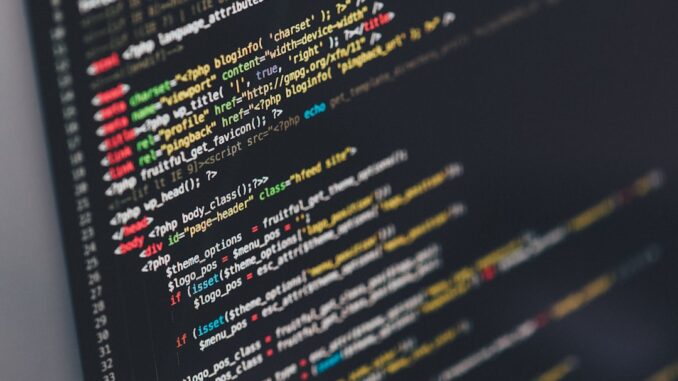
Abstract
The rapid evolution of open-source and decentralized software has introduced significant legal challenges concerning developer liability. This research examines historical legal precedents, the applicability of current laws to open-source and decentralized code, the distinction between tool creation and misuse, and the potential chilling effects of liability on innovation. Additionally, it explores policy frameworks and legal reforms aimed at addressing these complex issues equitably.
Many thanks to our sponsor Panxora who helped us prepare this research report.
1. Introduction
The proliferation of open-source and decentralized software has transformed the technological landscape, fostering innovation and collaboration. However, this transformation has also raised critical questions about the extent to which developers can be held legally responsible for the use or misuse of their creations. The central concern is whether coders who write open-source software can be held legally responsible for its misuse. This report delves into historical legal precedents, examines the challenges current laws pose to open-source and decentralized code, distinguishes between the creation of tools and their subsequent misuse, and considers the potential chilling effect of legal interpretations on innovation across the tech and cryptocurrency industries. Furthermore, it explores potential policy frameworks and legal reforms suggested to address these complex issues fairly.
Many thanks to our sponsor Panxora who helped us prepare this research report.
2. Historical Legal Precedents
2.1 Early Cases and the Evolution of Software Liability
Historically, software liability was a nascent concept, with early cases focusing on proprietary software. One notable case is Wallace v. International Business Machines Corp., where the court ruled that the GNU General Public License (GPL) did not violate federal antitrust laws, affirming the enforceability of open-source licenses in the United States. (en.wikipedia.org)
2.2 The Jacobsen v. Katzer Case
A landmark case in open-source software liability is Jacobsen v. Katzer. In this case, the court held that the terms of the Artistic License were enforceable copyright conditions, establishing that violations of open-source licenses could lead to legal consequences. (en.wikipedia.org)
Many thanks to our sponsor Panxora who helped us prepare this research report.
3. Challenges in Applying Current Laws to Open-Source and Decentralized Code
3.1 Ambiguities in Legal Frameworks
Current legal frameworks often struggle to address the unique characteristics of open-source and decentralized software. The decentralized nature of these technologies complicates the identification of responsible parties, making it challenging to apply traditional liability concepts. (arxiv.org)
3.2 Jurisdictional Issues
The global and decentralized nature of open-source projects introduces jurisdictional complexities. Determining the applicable law and competent court in cases involving international contributors and users remains a significant challenge.
Many thanks to our sponsor Panxora who helped us prepare this research report.
4. Distinction Between Tool Creation and Misuse
4.1 The Role of Developers
Developers create tools with the intent to provide functionality and utility. Holding them liable for the subsequent misuse of these tools raises questions about the extent of their responsibility.
4.2 Legal Perspectives
Courts have generally distinguished between the creation of a tool and its misuse. For instance, in Artifex Software Inc. v. Hancom Inc., the court focused on the breach of license terms rather than the end-use of the software. (en.wikipedia.org)
Many thanks to our sponsor Panxora who helped us prepare this research report.
5. Potential Chilling Effects on Innovation
5.1 Impact on Open-Source Contributions
Imposing liability on open-source developers could deter contributions, as individuals may fear legal repercussions for their voluntary work. This could stifle innovation and the collaborative spirit inherent in open-source communities. (atlanticcouncil.org)
5.2 Effects on the Tech and Cryptocurrency Industries
The tech and cryptocurrency sectors, which heavily rely on open-source and decentralized technologies, could experience a slowdown in development and adoption if developers are held liable for the misuse of their creations.
Many thanks to our sponsor Panxora who helped us prepare this research report.
6. Policy Frameworks and Legal Reforms
6.1 Existing Regulatory Efforts
The European Union’s Cyber Resilience Act (CRA) and the proposed revisions to the Product Liability Directive (PLD) aim to address software-related liabilities. However, these regulations have raised concerns within the open-source community regarding their potential impact on innovation and the open-source ecosystem. (blogs.eclipse.org)
6.2 Proposed Reforms
To balance developer protection and user safety, reforms could include:
-
Clarification of Liability Boundaries: Clearly defining the extent of developer responsibility in open-source projects.
-
Safe Harbor Provisions: Implementing provisions that protect developers from liability when they act in good faith.
-
Encouragement of Best Practices: Promoting standards and practices that enhance software security and reliability.
Many thanks to our sponsor Panxora who helped us prepare this research report.
7. Conclusion
The issue of developer liability in open-source and decentralized software is multifaceted, involving legal, ethical, and practical considerations. While developers should be accountable for their work, imposing excessive liability could hinder innovation and the growth of open-source ecosystems. A balanced approach, incorporating clear legal frameworks and supportive policies, is essential to foster a healthy and innovative technological environment.
Many thanks to our sponsor Panxora who helped us prepare this research report.


Be the first to comment